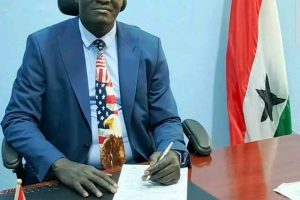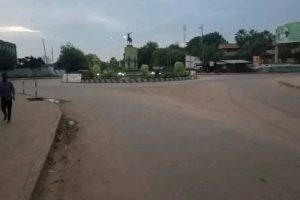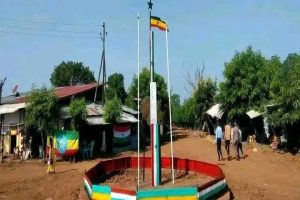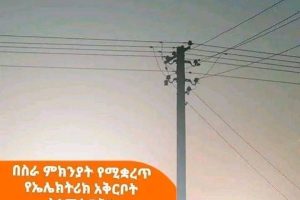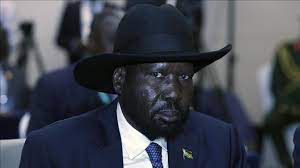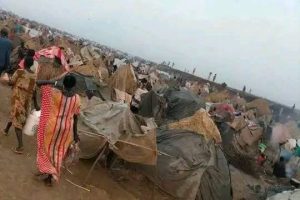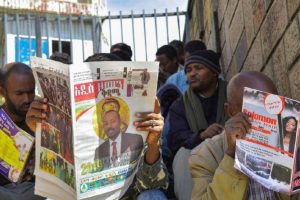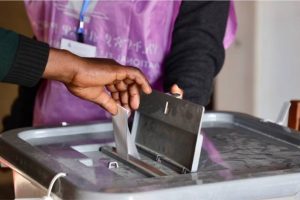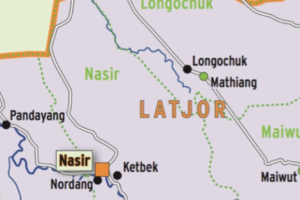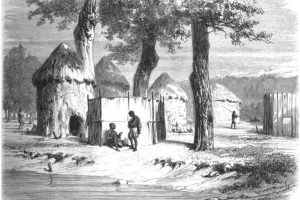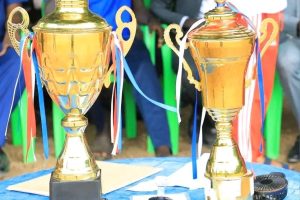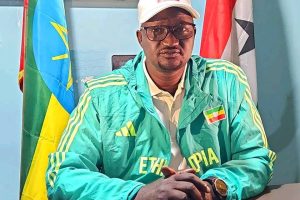The purpose of this article is to reflect and address some of the reasons why the awaited South Sudan’s National Elections which had been stipulated to be conducted, if possible, in December 2024, has already been stolen and rigged by Salva Kiir’s SPLM-IG.
Profoundly, these national elections are the reco
mmendations of 2018 peace agreement, which recommended among other things that, after 36-months of transitional period, that had already been extended four times, had to be concluded by conducting national elections.
These national elections must have to be held in accordance with the terms of the Revitalized Peace Agreement on the Resolution of the Conflict in the Republic of South Sudan (R-ARCSS). The peace document suggested, all government levels from National, States, Counties, Payams and Bomas/Bumas; will be opened for general contests.
However, before these elections could take place, as implementation stance momentarily, all prerequisites the author had described above have not yet been implemented. There is no sign of implementing them either in sooner time possible, given the rhetoric of the SPLM-IG spoke person Mr. Michael Makuei Lueth who retreated from being a government spokesperson to one political party spokesperson.
In his rhetoric, Makuei stated, “If we don’t go for elections, the international community and the people of South Sudan will stone us. Those who say we are not for elections are the ones who are saying, unless we implement all the provisions of the agreement. There is no agreement in the world implemented 100%.
Even in the CPA which brought the independence of South Sudan, there are some provisions still outstanding up to now.” That oratory and numerous indications below, clarified the notion that SPLM-IG of Salva Kiir had stolen and rigged the election before South Sudanese citizens could even cast their ballots in polling stations in 2024.
Firstly, the SPLM-IG of Salva Kiir, has stolen and rigged the awaited 2024 election by refusing to deploy unified forces, for the reason that, environment will not be conducive for opposition party leaders to campaign once campaign trail kicks off. This is similar to what was done to Dr. Lam Akol in 2010 Sudan’s National Elections when Dr. Lam decided to challenge Salva Kiir for the Southern Sudan semi-autonomous presidency when Salva refused to run against Omar al Bashir for the presidency of Sudan in that election.
During the take-off of Sudan’s election, which started from April 11-15, 2010, the dominance of the two incumbent parties in the north and south presented obstacles to a “free and fair” election. There were serious impediments in the election, especially in Southern Sudan. International observers observed the two ruling parties’ interference in the media throughout the country’s election as a clear obstacle.
Dr. Lam at the time was not free to campaign anywhere in the country and his party members who were running were intimidated. The same DeJa’Vu must indubitably repeat itself. Currently, only SPLM-IG leadership and its supporters are campaigning.
For instance, President Salva Kiir kicked off his election campaign in his stronghold of Bahr-el-Ghazal in July. Now he is planning to campaign in Upper Nile State, the stronghold of his main rival Dr. Riek Machar, while other political party leaders are locked down in the big prison Juba without moving anywhere.
Secondly, the ruling SPLM-IG is stealing and rigging an awaited election by refusing nationwide census counts. The reason behind the refusal is that they want to give more ballots to the people the party has more confidence in to gain votes during elections. For example, SPLM-IG can give millions of ballots to Bahr el Ghazal region where one person can fill up to 1000 ballots knowing, nobody will question the authenticity as they already attempted to increase the population of Warrap State last April when the government of South Sudan launched the population estimation survey led by South Sudan’s National Bureau of Statistics (NBS).
Profoundly, the population of Southern Sudan, now, Republic of South Sudan, has always been inaccurate whenever a demographic is counted due to multiple reasons. For instance, during the Anglo-Egyptian condominium Sudan, South Sudanese people weren’t brought under government control entirely; some of them were hostile, and the rest avoided count during census counts simply because they didn’t want to pay taxes.
It was usually not in the interest of individuals to be counted or to supply correct information, and this made enumerations to be often incomplete and inaccurate. Once they agree to be counted during census counts, only heads of the family members must be registered. Their children couldn’t be counted even if they were independent adults. That trend continued when the Arab led government took over.
Another factor that contributed to inaccuracy of the population is that Sudan engaged in civil wars since independence. There had always been refugees in neighboring countries who could not be counted once the census count was taking place. In that regard, all consecutive regimes in the Sudan then and after South Sudan secession had never come up with an accurate demographic; they regularly dwelled on insufficient estimation surveys.
In 2008, when Sudan conducted its fifth population and housing census, that census put the number of South Sudanese population at 8,260,490. The total of Sudan’s population was reported as 39,154,490; and South Sudan population was constituted to be only 21 percent of the national population, a figure South Sudanese rejected saying some 520,000 southerners were still living in northern Sudan.
Juba complained that the numbers of Southerners in the North turned out to be less than expected. In 2021, the population of South Sudan was projected as 11.38 million, up by 1.68% compared with 11.19 million in 2020. South Sudan is ranked 83rd in terms of population and 62nd in terms of population growth rate. There are 0.39 million births in South Sudan in 2021. That is 1,073 per day, which is ranked 64th.
The crude birth rate is 33.94 per 1000 people. There are 0.12 million deaths in South Sudan in 2021. That is 319 per day, which is ranked 71st. The crude death rate is 10.09 per 1000 people. 2.86 million people are living in urban areas, which is 20.51% of the South Sudan population. South Sudan is ranked 221st in terms of urbanization. The sex ratio in South Sudan in 2021 is 100.24 males per 100 females.
There are 5.70 million males and 5.68 million females in South Sudan. The percentage of female population is 49.94% compared to 50.06% male population. South Sudan has 13.64 thousand more males than females. Hence, South Sudan is at 134th position out of 201 countries/territories in terms of female to male ratio.
On April 6, 2023, the government of South Sudan launched the population estimation survey led by South Sudan’s National Bureau of Statistics (NBS), a government official statistical Agency wanted to figure out the population based on satellite imagery and enumeration done together with the United Nations Population Fund (UNFPA) across 10 states and three administrative areas.
The new estimates are in stark contrast with South Sudan’s 2008 census counts, which stood at 8.26 million, informing the 2010 regional and national elections. The South Sudan government tries to imitate the same census. The estimates of April 6 have so far generated heated debates among various groups and many outright contesting them for a host of good reasons. They questioned the estimates that put the total of the country’s population to 12,444,018 and are demanding what they term “a proper census” as per the 2018 peace agreement.
The UN estimates had put the population at 11,556,069 even though the current survey was partly supported by the UN itself. According to the population estimates survey, 52.9 percent of the population are females and 47.1 percent males, while the population of youth stands at 77 percent.
Thirdly, the South Sudan SPLM-IG led government is stealing and rigging the election by refusing refugees repatriation for the reason that, majority of refugees can be voting overwhelmingly for opposition parties. The case in point is the situation of tens of thousands South Sudanese citizens who were fleeing the conflict in Sudan and trapped in deplorable conditions in the South Sudan border town of Renk.
Most of these new arrivals are South Sudanese who sought refuge in Sudan when South Sudan was plugged in a civil war. The government and its UN partners have only managed to assist a few thousand people to head home, especially people whom the government sees as its supporters. The rest who are seen as opposition supporters are left stranded in Renk without proper assistances,
Fourthly, another government plan to steal and rig the 2024 election is the refusal to quickly complete the arrangement of the permanent constitution. Although the process of drafting a new constitution for the country is underway. The process remains stalled. The reason SPLM-IG is afraid of expediting the permanent constitutions is that the new constitution R-ARCSS is calling for an inclusive, participatory and transparent permanent constitution that is deemed legitimate in the eyes of South Sudanese people which aims to establish democracy and the rule of law.
The authority of the government at all levels shall derive from this Constitution and the law which allow ordinary citizens to choose their leaders through ballot boxes. Traditional federal constitutions derive their authority from the will and desires of the people. The 2011 transitional constitution had concentrated the power in the hand of Salva Kiir and resulted in a presidency that controls the content of constitution-making while insulating itself from accountability for its actions.
For example, Article 101, of the transitional constitution had enumerated the responsibilities of the office of the President, as a king-like executive. President Kiir has interpreted these provisions as being without limit. For instance, only eighteen months after independence, he summarily dismissed the governors of both Lakes and Unity State. This act was wantonly unconstitutional and motivated by the governors’ perceived comradeship with VP Riek Machar at the time. President Kiir has consistently exercised these provisions without due process.
Finally, the new constitution must incorporate provisions that constrain the power of the executive, mandate the separation of powers and harness South Sudan’s diversity in a way that decentralizes decision-making and builds a culture of inclusivity and this is what SPLM-IG is afraid of.
Fifthly, SPLM-IG is stealing the election by refusing to unite forces. What the government wanted to do was to bribe opposition forces to defect to the SSPDF. They use both money and positions. The government is also planning to use state machinery (security forces, intelligence agencies, to rig the elections in favor of the SPLM-IG. Salva may use intelligence agencies and security forces to intimidate or keep his opponents in check throughout the campaign period. He also will appoint his allies to head the electoral commission.
It is not who casts the vote that matters. What matters is who counts the votes. Elections in Africa are won or lost at the tallying canters. In this regard, President Kiir may ensure the electoral commission is manned by those sympathetic to him. He is currently populated by the Supreme Court of South Sudan with his allies who can uphold his fraudulent electoral win in case the opposition decides to contest it in court. He is also appointing ministers, governors and other political pose holders to prioritize the efforts of ensuring that these individuals are influencing their communities to vote for him once the election is taking place.
In conclusion, South Sudan National Elections slated to be conducted in 2024, are being stolen and rigged by the SPLM-IG of Salva Kiir. The ruling party is refusing to implement all provisions which will create a conducive environment for all political parties to participate freely in upcoming elections. Smaller political parties and minorities will have difficulties to be adequately represented, a problem that could prove to be crucial in a country as ethnically diverse as South Sudan.
In addition, this risks a continuation of the concentration of power in the current ruling party, the Sudan People’s Liberation Movement (SPLM). Notwithstanding possible problems that might arise out of the electoral system, South Sudan still has to take several important steps before new elections can take place.
A complete security arrangement, packaging with the unification of all armed forces, arrangements of the permanent constitution, repatriation of refugees and the nationwide population census, had to be carried out. Furthermore, the implementation of the relatively complex electoral system under which each voter has to cast at least five different votes for elections on the national, state, county, Payam, and Boma/Buma levels is hampered by the fact that South Sudan is one of the least developed countries with high illiteracy that would complicate election accuracy.
It is one’s hope SPLM-IG will remorse from stealing and rigging elections slated to take place in 2024 and begin to create political space where pending provisions are implemented, and other political party leaders are allowed to campaign freely.
Respectively,
Lul Gatkuoth Gatluak
The author is a political commentator. He can be reached at lu**********@***il.com


